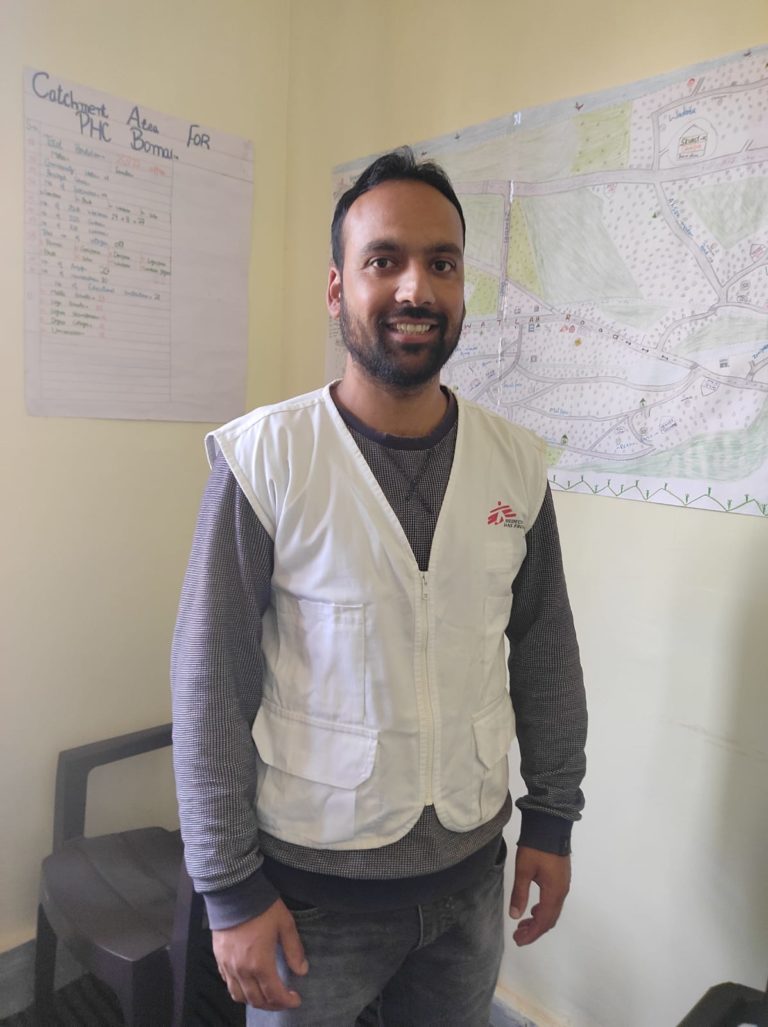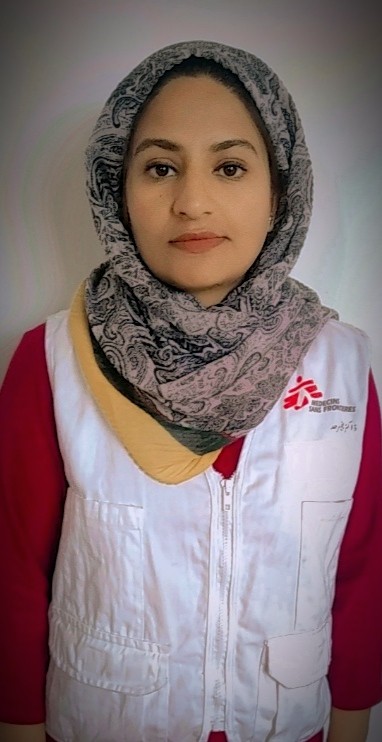In Kashmir valley, better mental health is sought. Community outreach is reducing stigma and increasing care seeking behaviour.
Every week from Monday to Friday, 30 year-old Mudasir Lone in Sopore, Kashmir, spends eight hours daily interacting with locals and talking to them about mental health. He is part of the Médecins Sans Frontières (MSF) / Doctors Without Borders team that works towards creating awareness about the issue and the availability of mental health services in the valley. Lone has been working with MSF as a Community Mental Health Worker (CMHW) since March 2021.
But the journey has not been easy for him. Years of conflict in Kashmir have taken a toll on people’s mental health. It has made Lone’s work challenging: his patient interactions are extremely intense and extremely personal. According to a survey conducted by MSF in 2015, nearly 1.8 million adults (45% of the adult population) in Kashmir show symptoms of significant mental distress (psychological trauma, anxiety-related symptoms, mood-related symptoms, sexual and gender-based violence, and substance abuse).
This is compounded by the stigma associated with addressing poor mental health, participants in the MSF survey also reported taking the affected individual to a spiritual healer, or less commonly a traditional healer. This can delay patients from receiving the vital mental health care they need.

This is compounded by the stigma associated with addressing poor mental health, participants in the MSF survey also reported taking the affected individual to a spiritual healer, or less commonly a traditional healer. This can delay patients from receiving the vital mental health care they need.
Working in close collaboration with the government medical staff, Primary Health Centers (PHC), and educational institutions, MSF encourages care-seeking behavior in Kashmir by sharing positive stories. “Initially, people were hesitant (to participate in these conversations),” he adds, recalling the challenges faced to build trust in the community. But with time, the team’s efforts are now slowly bearing fruit.
For him, one particular case stands out. He recalls the case of a woman in her 50s who had been struggling with Post-traumatic stress disorder (PTSD) for the last two decades. She had never sought clinical aid due to societal prejudices. “It was her 26-year-old daughter who came to us seeking help. She had witnessed our community events a few times and was hopeful of getting medical care for her mother. Once we established connect with the patient, we were able to convince her to take up a series of counselling sessions,” says Lone.
The Community Mental Health Worker says it took the next few months to observe the alleviation of symptoms or improved signs of better mental health in the woman but it is cases like these that should strengthen the belief that it is never too late to seek help.
MSF has been providing free, high-quality counselling to people affected in the Kashmir valley since 2001. Project data reveals that during the COVID-19 lockdown and restrictions in Kashmir, the number of people seeking mental health support increased significantly in June 2021. Although people in the valley have experienced frequent and long-standing shutdowns, the pandemic acted as a new trigger to evoke anxiety, depression and panic among the people in Kashmir. Many of our patients, who had recovered in the past, relapsed during the lockdown and restrictions. Till date, we have conducted more than 4000 counselling sessions with 60 per cent of first time visitors being women.
To combat the stigma associated with mental illness, our teams also raise awareness on the importance of mental health and the need for availability of mental health services in the valley. Currently, MSF teams provide counselling services at hospitals in five districts: Baramulla, Shopian, Pulwama, Srinagar and Sopore.
Providing mental health support also faces the challenge to go against the beliefs and traditions of the community. Twenty five-year-old Mahpara Ara, who also works in Sopore as a Community Mental Health Worker (CMHW) since last year.

MSF data (2021-2022) reveals that 44% of the total new patients are between the age group of 10 to 25 years while around 38% of the total new patients are between 26 to 40 years of age. The rest 16% are 41 and above and the remaining 2% are below 10 years of age.
However, a recent case has given her a ray of hope that the community is willing to open up and change its approach. She recalls the case of a 19-year-old girl who suffered from repeated panic attacks. The deteriorating mental health was affecting not only her school life but also her personal life. Her father, despite being a traditional faith healer, brought her to the MSF clinic and sought help for his daughter. Her condition improved after a series of counselling sessions.











